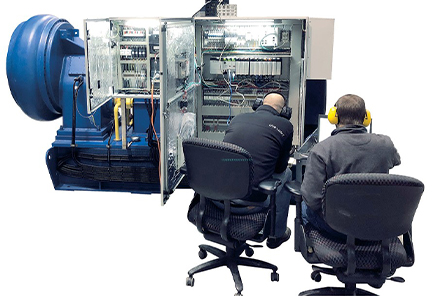
Engineering support systems play a crucial role in the development and advancement of various industries. From software tools to hardware devices, these systems are designed to assist engineers in the design, analysis, and optimization of products and processes. As technology continues to evolve at a rapid pace, the future of engineering support systems looks promising, with exciting innovations on the horizon.
One of the key trends that we can expect to see in the future is the integration of artificial intelligence (AI) and machine learning algorithms into engineering support systems. These technologies have the potential to revolutionize the way engineers work by automating repetitive tasks, optimizing designs, and predicting potential issues before they arise. With the help of AI, engineers can make more informed decisions and accelerate the product development process.
Another area of innovation in engineering support systems is the development of virtual and augmented reality tools. These technologies allow engineers to visualize designs in a 3D environment, enabling them to identify potential problems and make adjustments before a physical prototype is built. By immersing themselves in a virtual world, engineers can test different iterations of a design, collaborate with team members remotely, and ultimately speed up the development process.
Furthermore, the rise of Internet of Things (IoT) devices is also set to transform engineering support systems. By connecting sensors and actuators to physical objects, engineers can collect real-time data on the performance of products and systems. This data can then be analyzed to identify patterns, optimize performance, and predict maintenance needs. With the help of IoT devices, engineers can create smarter, more efficient designs that meet the demands of a rapidly changing world.
In addition to these technological advancements, we can also expect to see a shift towards more collaborative and interdisciplinary approaches to engineering support systems. As problems become more complex and interconnected, engineers will need to work closely with experts from other fields, such as data science, materials science, and biology, to find innovative solutions. By leveraging the expertise of diverse teams, engineering support systems can tackle challenges that were once thought to be insurmountable.
Another important aspect of the future of engineering support systems is sustainability. With the increasing focus on environmental conservation and resource efficiency, engineers will need to develop tools and techniques that minimize waste, reduce energy consumption, and lower carbon emissions. By integrating sustainability principles into engineering support systems, we can create a more sustainable future for generations to come.
Overall, the future of engineering support systems is bright and full of possibilities. With the integration of AI, virtual reality, IoT devices, interdisciplinary collaboration, and sustainability principles, engineers are poised to revolutionize the way we design, analyze, and optimize products and processes. By embracing these innovations and pushing the boundaries of what is possible, engineering support systems will continue to play a vital role in shaping the future of technology and society as a whole.